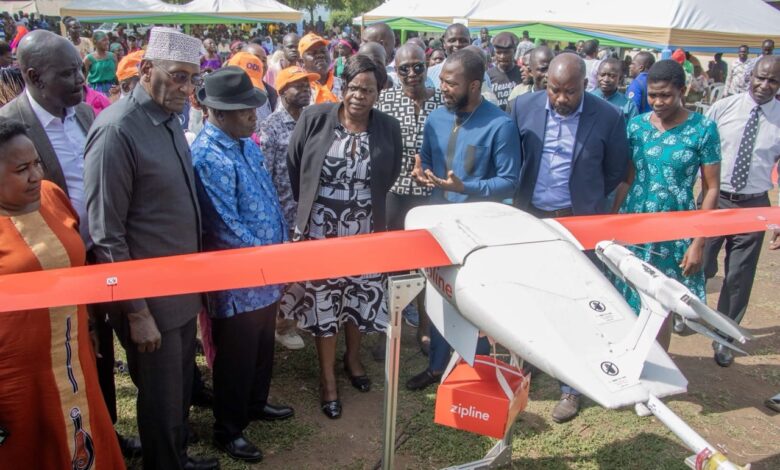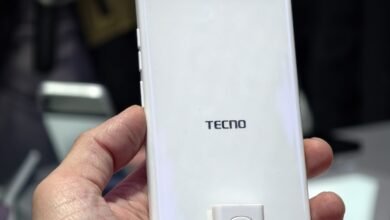
Homa Bay County has announced a major expansion of its partnership with Zipline, the world’s largest autonomous logistics company, to overhaul the county’s entire health supply system and ensure reliable, fast delivery of life-saving medicines, especially to remote and hard-to-reach communities.
The decision comes at a critical time for Kenya’s public healthcare system, which continues to face supply chain disruptions following the suspension of United States Agency for International Development (USAID)-funded programs. This pause has stranded vital medicines in warehouses across the country, leaving counties like Homa Bay scrambling for alternative delivery solutions.
From HIV Care to System-Wide Health Reform
Zipline initially began operations in Homa Bay in 2023 through a collaboration supported by the Elton John AIDS Foundation (EJAF). The pilot program focused on improving access to HIV prevention, testing, and treatment services among adolescents and young people (AYPs), a demographic disproportionately affected by stigma and logistical barriers.
According to official data, between September 2023 and March 2025:
- 33,897 adolescents and young people received health education and informational materials at community outreach events
- 15,876 individuals engaged in HIV counselling or testing services
- Thousands more were reached through joint EJAF and Zipline outreach programs aimed at discreetly distributing HIV medication and sexual health products
Despite progress, Homa Bay continues to bear one of the highest HIV burdens in Kenya, with over 100,000 residents living with HIV. This makes it a priority area for both targeted interventions and broad health reforms.
Expansion to Cover Emergency and Essential Supplies
The newly expanded agreement between Zipline and Homa Bay County marks a fundamental shift from targeted HIV care delivery to comprehensive, system-wide health support. Zipline’s autonomous drone system will now deliver a wider range of critical medical commodities, including:
- Blood products for managing postpartum hemorrhage, a leading cause of maternal mortality
- Vaccines, including for malaria and human papillomavirus (HPV), to boost immunization rates
- Oxytocin, essential for controlling maternal bleeding and preventing fatal childbirth complications
- Anti-snake venom and anti-rabies treatments, vital for protecting rural populations and farmers
- Insulin injections for diabetic emergencies and labetalol for managing hypertensive crises
The goal is to equip 84 designated health facilities across the county with fast, dependable access to these supplies, regardless of weather, terrain, or infrastructure limitations.

Confronting National Supply Chain Failures
Kenya’s healthcare system has faced increasing strain since the indefinite suspension of USAID health programs, which previously supported distribution of antiretrovirals, malaria medication, and reproductive health supplies. As a result, critical medicines have piled up in Nairobi warehouses while patients in rural areas are left vulnerable.
This systemic fragility is compounded by long-standing logistical challenges in counties like Homa Bay, including:
- Unpredictable road access during rainy seasons
- Lack of centralised medical storage
- Delays and wastage due to poor inventory management
By centralising storage and using drones capable of navigating Kenya’s varied geography, Zipline offers a robust workaround that addresses both the immediate crisis and long-term inefficiencies in medical distribution.
Statements from County and Zipline Officials
Governor Gladys Wanga praised the expanded partnership, stating:
“This initiative will facilitate the distribution of essential medications and blood products to remote healthcare facilities across the county. The initial phase aims to reach 84 health facilities, ensuring that emergency supplies are available swiftly, even in locations that are difficult to access.”
Charles Kariuki, Sales Director for Zipline Kenya, described the expansion as a shift from reactive response to proactive resilience:
“By integrating Zipline into their health infrastructure, Homa Bay is enabling consistent access to essential medicines, reducing stockouts, and strengthening facility-level response. This drives better health outcomes and economic value, with fewer emergency referrals, less wastage, and smarter use of limited public resources.”
Zipline’s Broader Impact
Zipline operates the world’s largest autonomous logistics system. Founded to build logistics infrastructure that serves everyone equally, the company:
- Designs, manufactures, and manages a fleet of fully electric drones
- Has flown over 100 million autonomous kilometres
- Delivered over 20 million vaccine doses and millions of other medical items globally
- Cuts delivery emissions by up to 97 percent compared to traditional fuel-based vehicles
In Rwanda and Ghana, where Zipline already operates at scale, the service has been credited with dramatically improving maternal health outcomes, vaccine coverage, and emergency response. Similar results are expected in Kenya.
Toward a New Health System Model in Kenya
The expansion of Zipline’s services in Homa Bay offers a glimpse into what a more resilient and efficient healthcare system could look like in Kenya, especially as public systems come under pressure from donor exits, climate-related disruptions, and persistent inequality in health access.
By turning to autonomous logistics and data-driven inventory management, Homa Bay County is not just reacting to a crisis. It is reimagining how essential health services can be delivered equitably, sustainably, and reliably in the 21st century.





